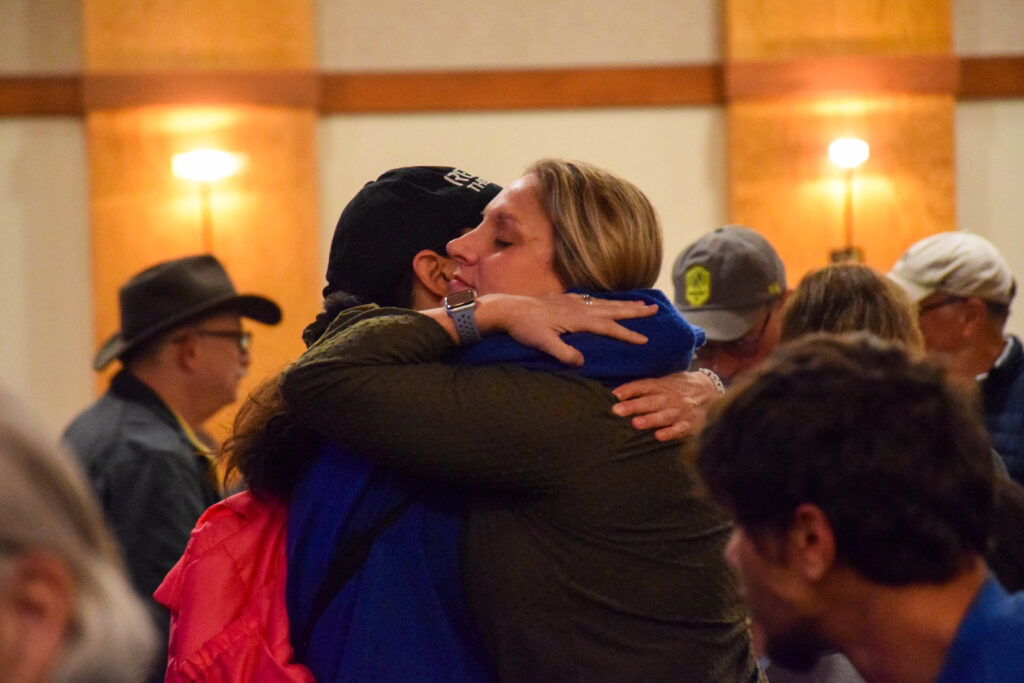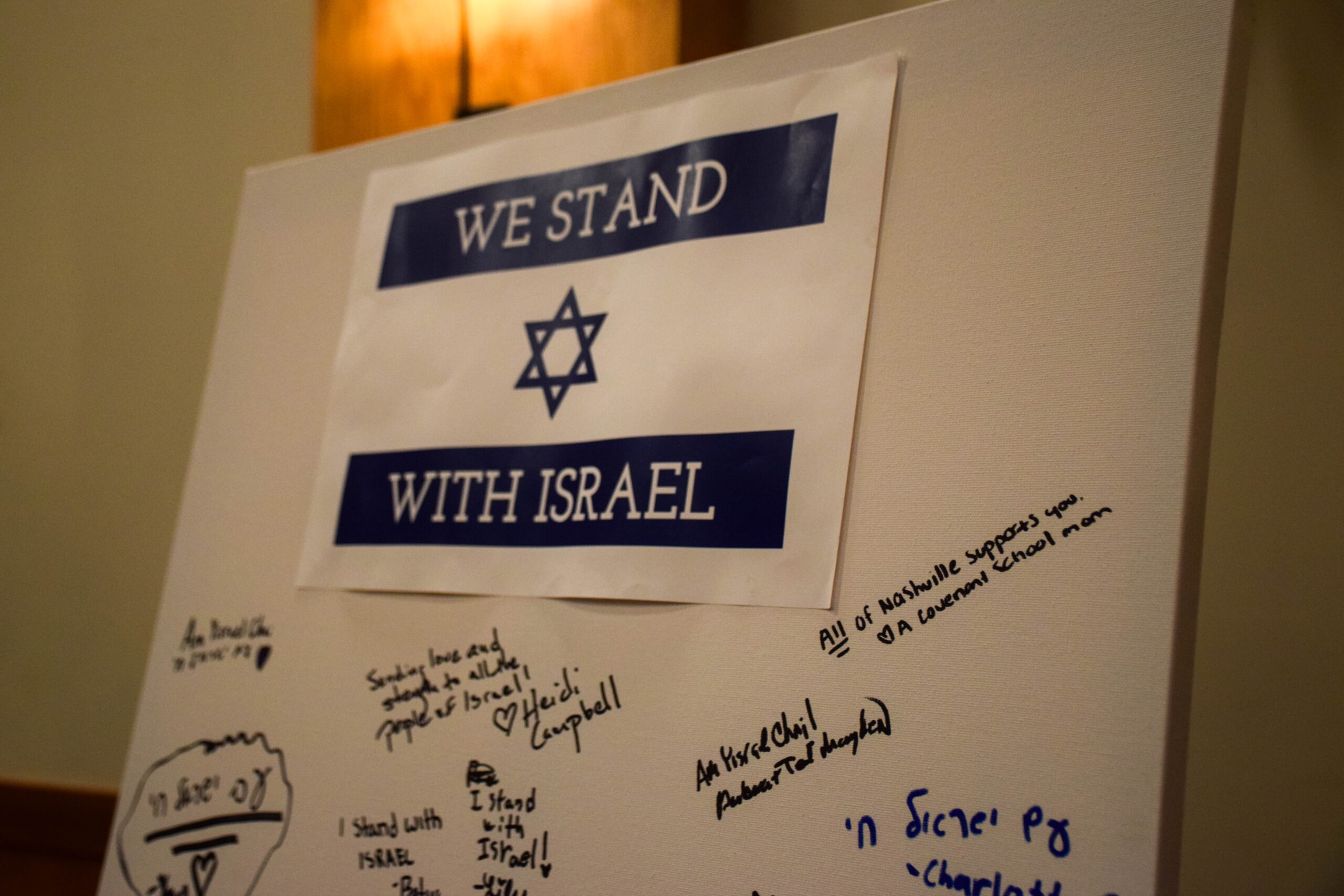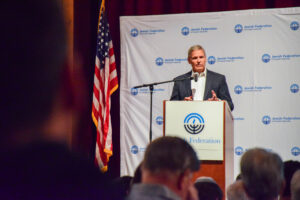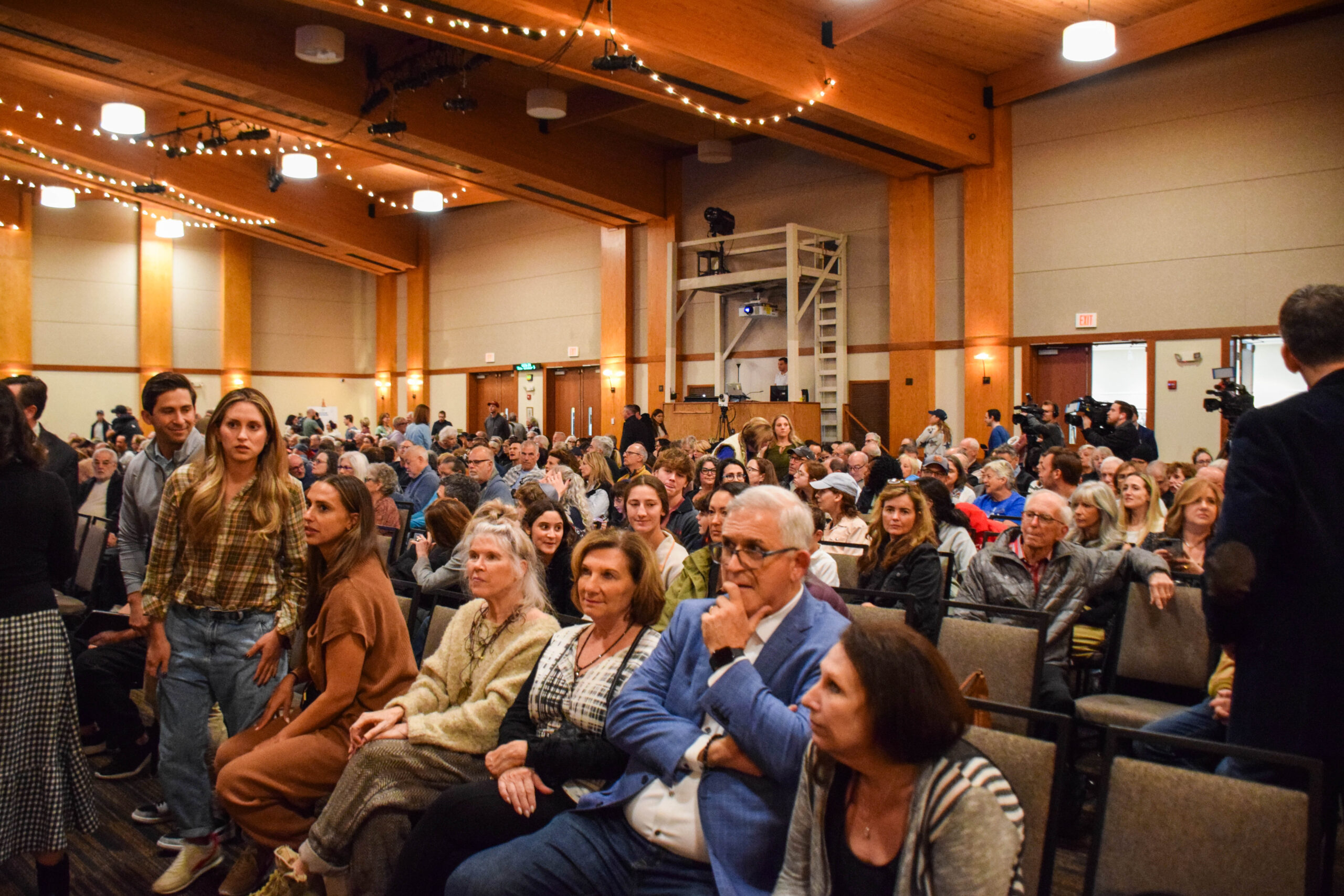
This Saturday, the Palestinian militant group Hamas attacked Israel, killing about 900, injuring 2,500 and kidnapping at least 130 people.
Israel retaliated with heavy airstrikes on the Gaza Strip, killing more than 680 — including at least 140 children —and injuring 3,700 people. That number is expected to rise as airstrikes continue.
 Rachel Iacovone WPLN News
Rachel Iacovone WPLN NewsAt the Jewish Federation of Greater Nashville’s rally in support of Israel, a poster board for attendees to write messages on has a note from a Covenant School parent and state Sen. Heidi Campbell.
In Nashville, members of the local Israeli and Palestinian communities are grieving and anxiously awaiting news of their friends and family.
 Rachel Iacovone WPLN News
Rachel Iacovone WPLN NewsGov. Bill Lee speaks to the crowd gathered at the Jewish Federation of Greater Nashville’s rally in support of Israel.
Over 700 people, including Gov. Bill Lee, gathered for a rally for Israel hosted by the Jewish Federation of Greater Nashville. Attendees prayed, sang and recited the mourner’s kaddish. At the end, about two dozen Israelis in the audience came to the stage to lead the room in their national anthem.
Shy Brameli was one of them. He lost a family member in the initial attack, and his niece and her two young children were held captive for about 10 hours.
Right now, Brameli said, he’s overwhelmed by grief and anger.
“There is no mercy in our hearts. I don’t find that mercy right now for those people on the other side,” he said. “I wish I had the mercy for them. But for the first time in my life, I don’t feel bad for them for the amount they’re going to suffer.”
However, he still hopes for a peaceful future.
“We do understand that war and hatred is not the solution … Hatred will lead us nowhere,” he said.
 Rachel Iacovone WPLN News
Rachel Iacovone WPLN NewsHundreds gather in the main room of the Jewish Federation of Greater Nashville’s rally. An overflow room for a few hundred more attendees who could not find seats was set up nearby for them to watch the event via livestream.
Nashville is also home to a significant Palestinian community.
Issam Bahour was born in Nashville, but he spent much of his childhood visiting his family in Gaza. He has fond memories of visiting the beach and playing soccer with his cousins.
“Honestly, Gaza is home,” he said.
As the Israeli government continues to order airstrikes on mosques, markets and residential areas, he fears for his family’s safety.
“It’s a constant worry as well as constant survivor’s guilt,” he said.
Bahour expressed his frustration with many American politicians’ lack of response to the rising number of Palestinian civilian casualties.
“We hear no condemnation. We hear no calls for humanity. It’s crickets,” he said.
The Gaza Strip is small and densely populated. And half of its population are children. It has been under blockade for 16 years, which means people living there can’t easily leave. The amount of food, water, fuel and electricity that crosses into the area is strictly controlled by the Israeli government.
In response to Hamas’ attack, Israeli Defense Minister Yoav Gallant announced a “complete siege” on Gaza, cutting off electricity and blocking the entry of food and fuel.
Bahour explained that access to electricity and clean drinking water has long been scarce for Palestinians living in Gaza, and at this point, worrying for his family’s safety feels familiar.
“Everyone from family to friends in Gaza, as well as the West Bank, are saying, you know, ‘We’re dying. We’re dying either way. It’s a matter of if we die today or tomorrow,'” he said.
Israel declared war on Hamas on Sunday. On Monday, Hamas’ military wing issued a message threatening to kill hostages if Israel bombs homes of women, children and elderly leaders in Gaza without warning.

